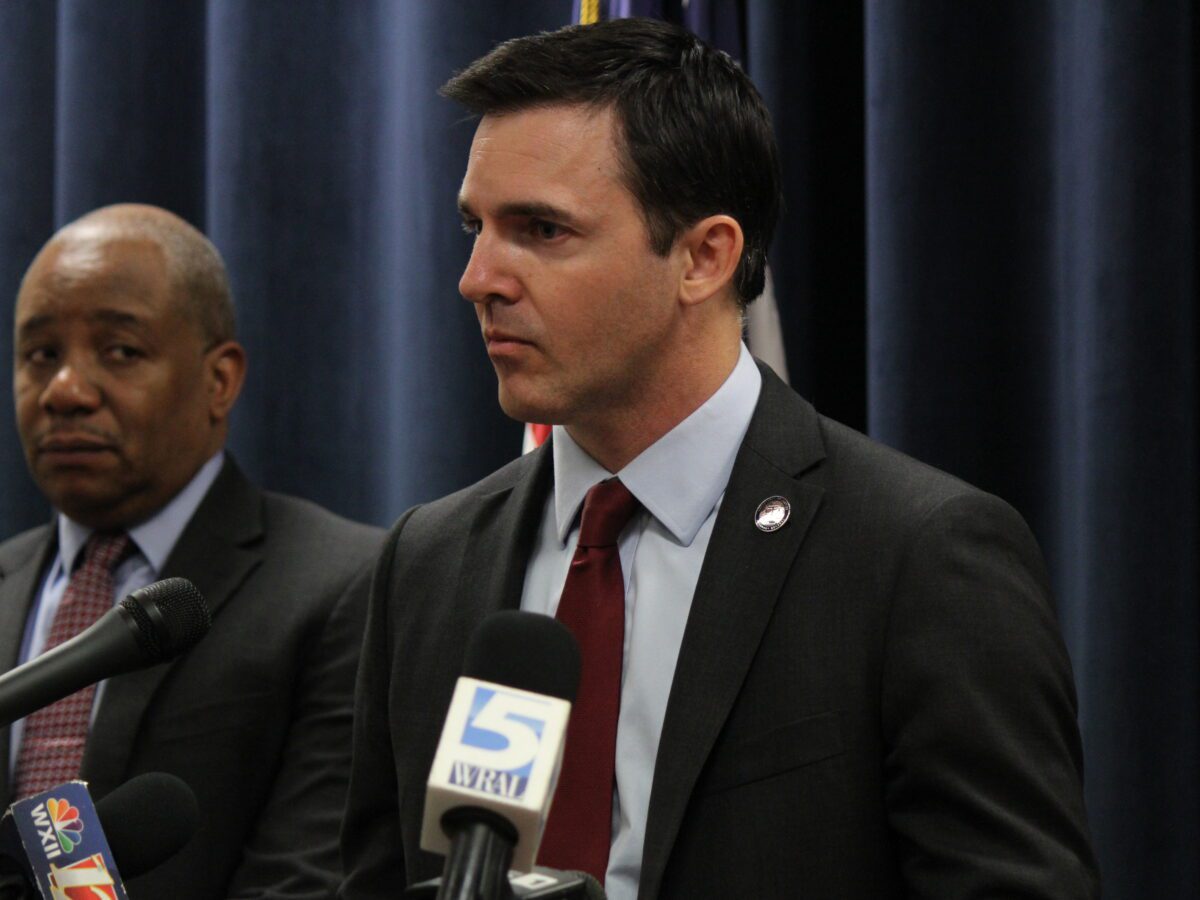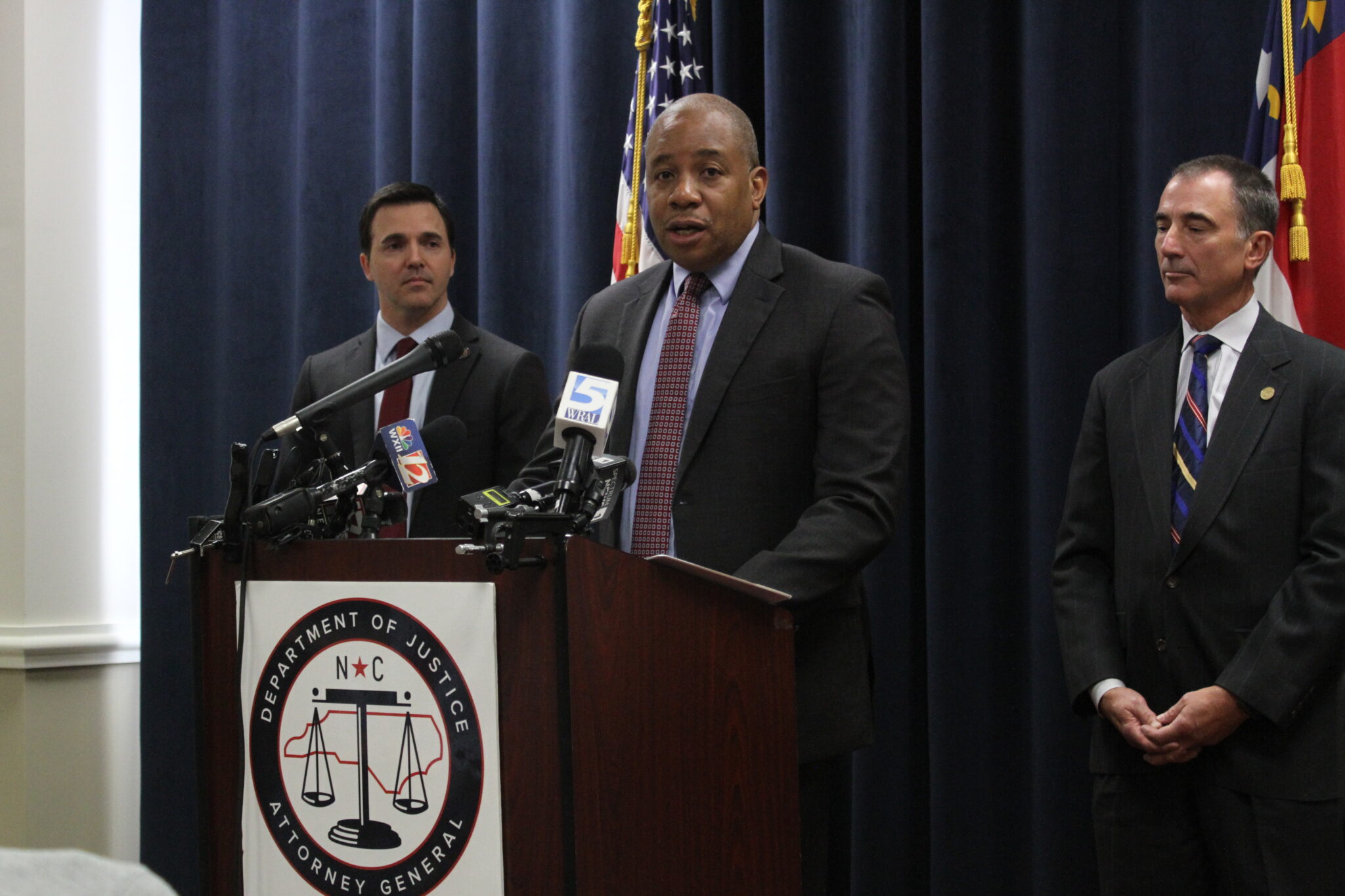
|
|
N.C. Attorney General Jeff Jackson filed a lawsuit against the federal government on Monday, aiming to unfreeze $165 million in education funds the U.S. Department of Education withheld from North Carolina.
On June 30 — one day before the funds were expected to be received — the N.C. Department of Public Instruction (DPI) was notified in a three-sentence email that “(g)iven the change in Administrations, the Department is reviewing the FY 2025 funding … and decisions have not yet been made concerning submissions and awards for this upcoming academic year.”
“The Department remains committed to ensuring taxpayer resources are spent in accordance with the President’s priorities and the Department’s statutory responsibilities,” the email said.
North Carolina joined 23 other states and the District of Columbia in the lawsuit. It names U.S. Secretary of Education Linda McMahon and President Donald Trump among the defendants.
Below are key documents from the lawsuit that detail the number of full-time equivalent (FTE) positions impacted and the amount of federal funding that is being withheld from districts, charter schools, and 21st Century Community Learning Center grant recipients.
About the funding
The funding in question was approved by Congress in March as part of the Full-Year Continuing Appropriations and Extensions Act of 2025, according to the lawsuit and a declaration by Superintendent of Public Instruction Maurice “Mo” Green.
The lawsuit argues that the federal government violated the Administrative Procedure Act and the separation of powers by withholding the money Congress approved.
North Carolina anticipated receiving a total of $165,566,697 for the following programs:
- Title I-C – Education of Migratory Children ($5,356,426)
- Title II-A – Supporting Effective Instruction ($67,906,396)
- Title III-A – English Language Acquisition, Language Enhancement, and Academic Achievement ($19,338,744)
- Title IV-A – Student Support and Academic Enrichment Grants ($37,245,499)
- Title IV-B – 21st Century Community Learning Centers ($35,719,614)
Green said at a press conference that the loss of funding for the programs doesn’t relieve the government of its legal obligations to carry them out.
“However, as of July 1, there is no funding to meet these obligations,” he said. “The impact on North Carolina’s public schools cannot be overstated.”
Schools already feeling the effects
Since July 1, North Carolina and other states have been operating without the funding they expected. State officials said the lack of funding could lead to class size increases in grades 1-3, educator layoffs, and could threaten crucial programs.
At the press conference, Alamance-Burlington School Board Chair Sandy Ellington-Graves, whose district would lose $1.7 million, said the programs at risk are not luxuries — they are fundamental to creating a supportive and enriching learning environment.
“In the Alamance-Burlington School System district alone, withholding these funds impacts professional development for over 250 new teachers, support for nearly 4,000 multilingual learners, and crucial academic enrichment services for our most vulnerable students,” Ellington-Graves said. “The withholding of these funds is not merely a financial challenge — it is a direct threat to our ability to provide the resources and support our students deserve.”

Jackson said rural school districts — like Ashe County Schools, Hoke County Schools, and Graham County Schools — and Helene-affected districts will be hurt disproportionately.
Charter schools, local government agencies, and community organizations — such as chapters of Boys & Girls Clubs of America and local YMCAs — would also lose federal funds.

Stopgap solutions
DPI has said carryover funds from 2023-24 and 2024-25 could be used to temporarily fund at-risk programs. Green said at the press conference that carryover funding varies but “in general, we’re talking about three months.”
He also said North Carolina might have to take more “dramatic” measures like reductions in force, leaving positions vacant, combining classrooms, and combining duties, because “we don’t know if and when these resources will open.”
Green called on the N.C. General Assembly to pass a state budget — which it was supposed to do by July 1 — and to consider increasing funding to make up for the potential federal losses.
“We’re asking the court to treat this as an urgency,” Jackson said. “We are hopeful that we get an outcome before the school year begins. We need this to be resolved within a matter of weeks, not months. That’s our goal.”
Meanwhile, some schools in North Carolina are already in session, summer programs are underway, and districts are hiring for the coming year.
An ‘open-and-shut’ case
Jackson said he views the legal argument to be straightforward and that he considers the lawsuit to be an “open-and-shut” case.
“The law was broken. The state was hurt. And I can prove both of those things,” he said. “When all three of those boxes are checked, you can expect to see action in this office.”
Recommended reading




